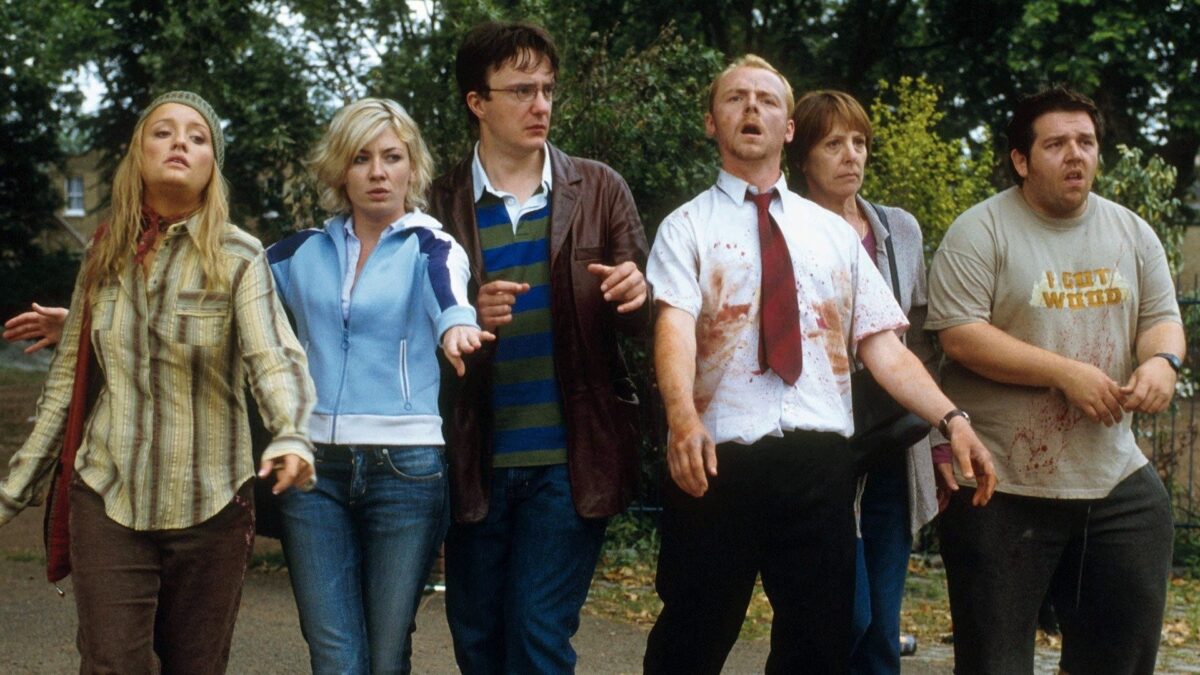
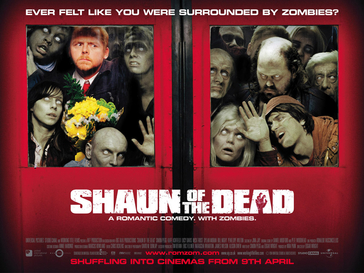
Believe it or not, it was a whole twenty moons ago that one of the best horror comedies graced the screen—(yes, 2004 really was that long ago). Edgar Wright’s Shaun of the Dead is a bonafide classic whose edgy humour, offensive charm, and bloodied zombie mayhem have cemented its zealous reputation all these years later.
Wright’s prized status began in the early 2000s thanks to his directorial efforts in Spaced, a British comedy series starring Simon Pegg, Nick Frost and Jessica Hynes, all of whom feature in Shaun of the Dead. It was from Spaced where Wright and Pegg conceived the idea of their soon-to-be horror hit. It is based on an episode titled ‘Art’, which features Pegg’s character hallucinating a zombie invasion after a prolonged session playing Resident Evil 2. With the pair both being major appreciators of the genre, the duo took their idea of hilarious zombie antics to Film4 before the studio eventually overly condensed the budget and, therefore, broke down certain crucial plot points. With a dream in mind, Wright refused to quit his zombie feature and pursued various studios over a two-year period before Working Title Films finally invested.
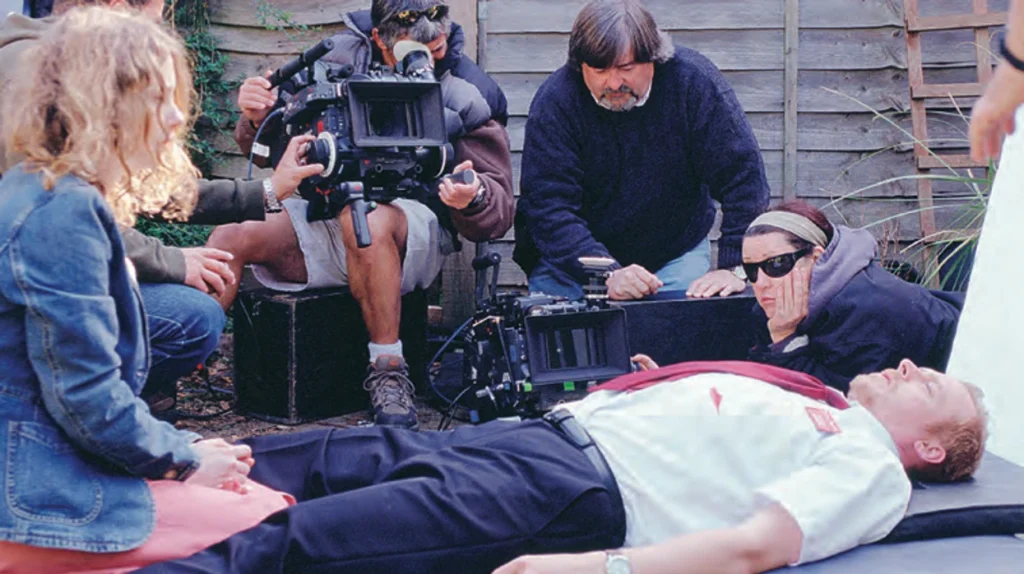
The project soon gained traction, casting major names in comedy from television series such as Black Books and The Office. Actors included Peter Serafinowicz, Dylan Moran, Tamsin Greig, Martin Freeman and Lucy Davis, alongside major names in feature films such as Penelope Wilton and Bill Nighy. The star-studded lineup also included a mass of extras playing the ghouls, nearly all of whom were part of fan communities for Spaced that were contacted on their online threads to be a part of a production from the makers of their favourite TV show. With a solid cast and crew, the nine-week filming process began before wrapping up and premiering at a whopping 367 cinemas and staying in the box office top ten for a total of five whole weeks.
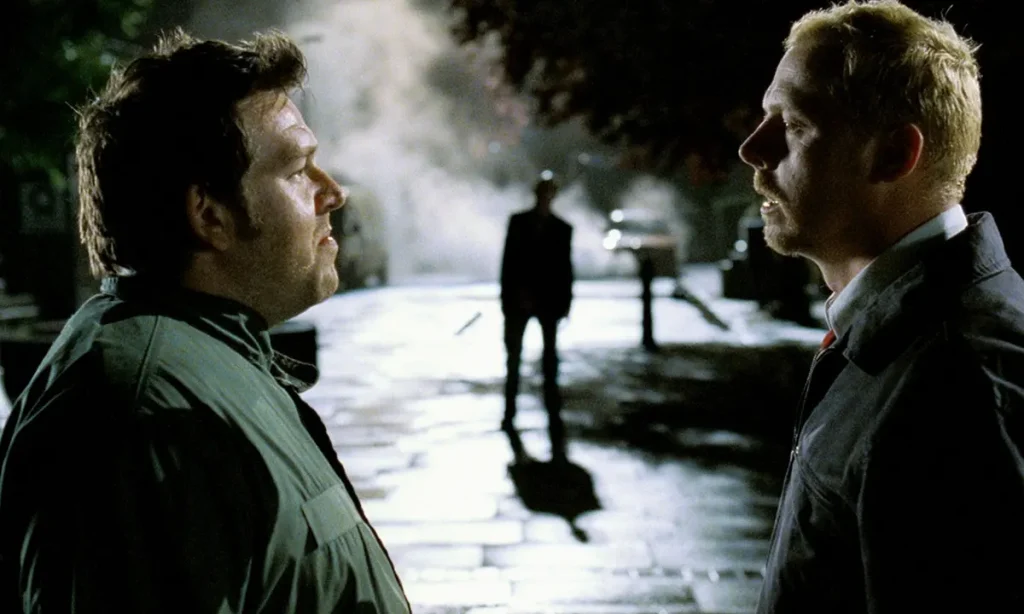
It’s safe to say that audiences went wild for this raucous zombie flick, with its reputation only growing stronger yearly. As it nears its twentieth anniversary, Shaun of the Dead is still making waves, dominating the discourse of satirical horror and creating conversations in the landscape of cinema. In the world of scholarly research and film readings, Shaun of the Dead has dipped its toes into many analytical waters. A popular take is how the film joins the barrage of apocalypse-themed releases from the mid-2000s in response to world events that were becoming frequent in the home with the increasing access to media and news.
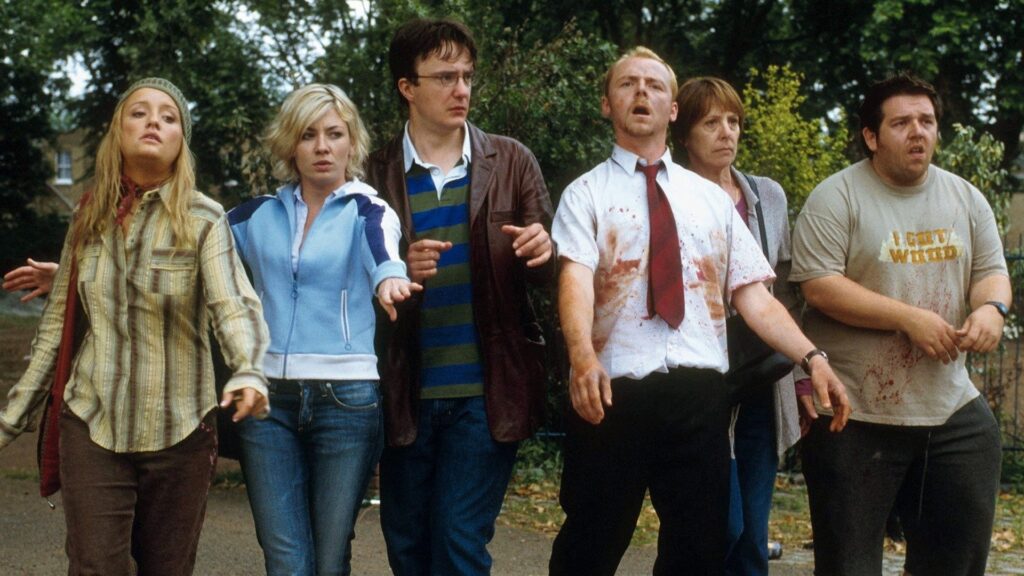
Others suggest that the film is a poetic example of transnational cinema which is commonly found within the UK. The leading players of zombie cinema primarily originated from across the pond, with the likes of George A. Romero’s Night of the Living Dead (1968) dictating the direction that zombie media followed for years. On the flip side, in Britain, there has been a constant ode to men in comedy who can’t help but make a fool of themselves as they go about gallivanting and making a ruddy nuance of situations – think the likes of Monty Python, Dad’s Army, Only Fools and Horses etc. The combination of Americanised scares and dramatic monstrous ghouls with two-bit but still chucklesome characters makes Shaun of the Dead attract an admiration that many budding filmmakers admire to achieve one day.
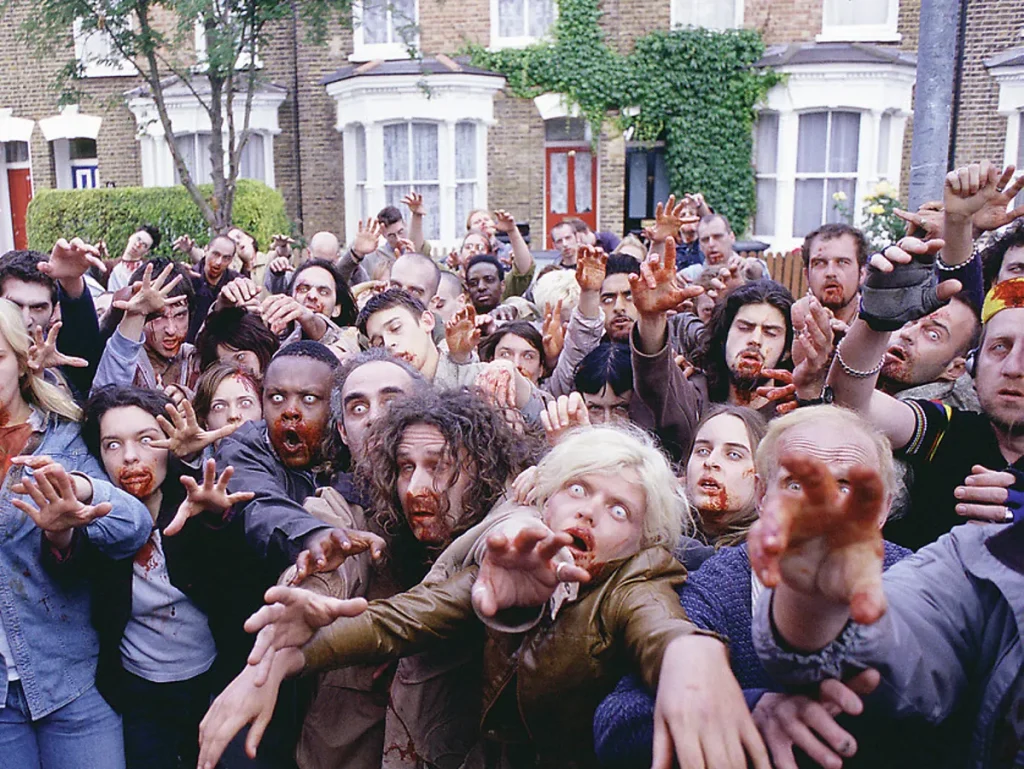
Stepping away from the formalities, Shaun of the Dead thrives in its thematics and ideologies. Shaun of the Dead has a monotonous, gritty quality that takes a slice-of-life approach to an apocalyptic situation, reminiscent of the ‘Keep Calm and Carry on’ motto burned through the British mindset. It was through this niche characteristic that the film’s lampoon-like comedy was able to shine through. As a case in point, whilst writing the script, Wright took inspiration from his own sardonic attitude at times; after having his own late-night gaming session being immersed in the world of horror video games, he took to going for an early morning walk where it could be imagined that half of the public was either coming home dazed from a late night out, or exhaustively treading along, gearing up for the morning shift at work. It’s a scene of mundanity at its finest. With Wright’s brilliant, dry humour at hand, he couldn’t help but think how on Earth Britain would, with all of its chaos and caustic disposition, react if their early morning shenanigans were interrupted by a plague of flesh-hungry undead creatures.
Discussing Shaun of the Dead without mentioning a certain dessert-named cinematic series would be criminal. This zom-com is the first entry into the acclaimed and fantastically named ‘The Three Flavours Cornetto Trilogy’, followed by the ‘great er good’ Hot Fuzz (2007) and the sci-fi-esque The World’s End (2013). Ironically, the coining of the Cornetto only came to fruition long after Shaun of the Dead’s release; It was during the promotional stages of Hot Fuzz, where Cornetto’s were given as an aperitif, that led to Pegg and Wright wanting to include the beloved ice cream treat into further films. It may seem akin to a superficial, silly joke, yet the rambunctious nature of developing inside jokes led to the trilogy, particularly Shaun of the Dead, retrospectively developing an intriguing interpretation. The films are all comprised of out of their depth individuals tackling a massive issue at hand and growing as people, but not necessarily (and comedically deliberate) maturing in their adolescent-like ways.
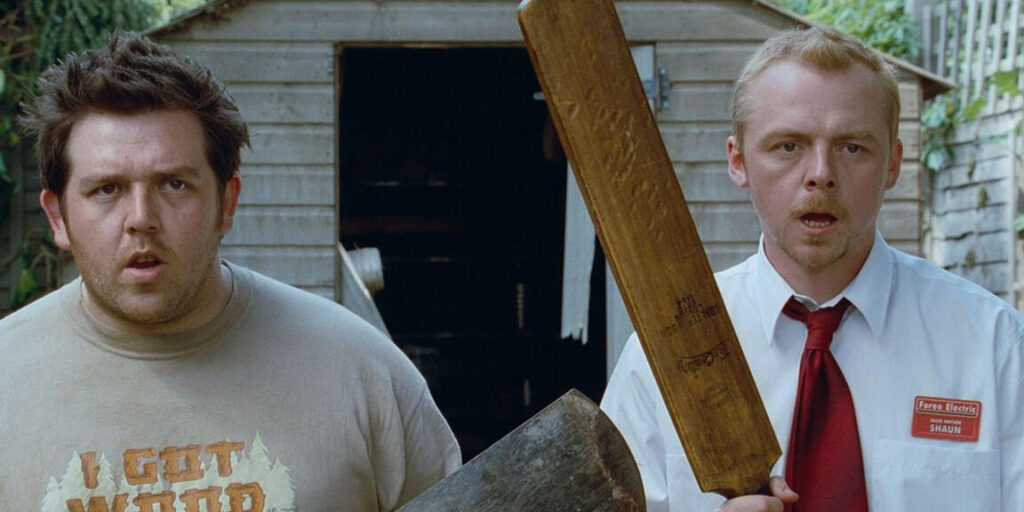
The development of Shaun of the Dead includes a comic strip titled ‘There’s Something About Mary’ for 2000 AD, the applauded comic magazine. Following this was IDW Publishing’s several-issue adaptation of the horror, with drawings from Zack Howard and writings by Chris Ryall. That’s not to mention the various special edition physical media releases and collectable action figures. Alongside this was Clark Collis’ book ‘You’ve Got Red on You: How Shaun of the Dead Was Brought to Life’ (2021), which details interviews with cast and crew, storyboards and behind-the-scenes insights.
Even just a few years back, the humble humour of Shaun of the Dead shone once again during the lockdown periods in the UK, with Shaun’s iconic ‘plan’ becoming somewhat of a motto for folks at home. For reminder’s sake, Shaun comes up with a simple action plan to tackle the ole zombie issue: “Take car. Go to Mum’s. Kill Phil-“Sorry”-grab Liz, go to the Winchester, have a nice cold pint, and wait for all of this to blow over”. The short, snappy and quintessentially British dialogue resurfaced via Pegg and Frost themselves as they put a modern spin on the plan by putting emphasis on staying home (avoiding the Winchester this time).
Shaun of the Dead’s legacy speaks for itself, with nearly every ‘best of horror’ list devoting a spot to this must-see film. This immeasurably hilarious take on a monster movie still garners a laugh-a-minute reaction from viewers, no matter how many times they’ve pressed play on this unmissable, culturally significant, and pivotal piece of cinema.
Want more top horror lists and reviews? Check out our blog here..

